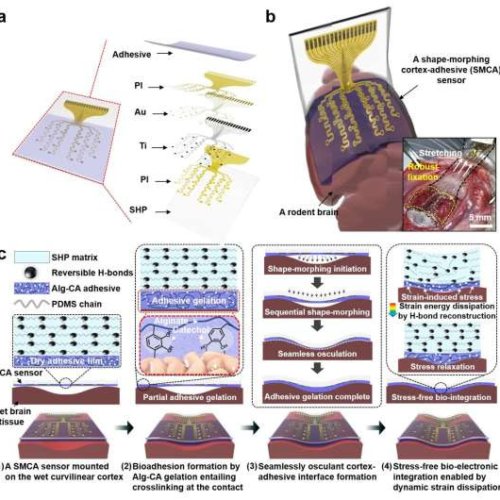by Northwestern University A hairpin loop from a pre-mRNA. Highlighted are the nucleobases (green) and the ribose-phosphate backbone (blue). Note that this is a single strand of RNA that folds back upon itself. Credit: Vossman/ Wikipedia When a gene produces too much protein, it can have devastating consequences on brain development and function. Patients with an...
Tag: <span>epilepsy</span>
Computational model can predict epilepsy after rare stroke
Credit: Pixabay/CC0 Public Domain Researchers from 15 countries, led by Amsterdam UMC, have developed a way to predict which patients are at risk of epilepsy after a cerebral venous sinus thrombosis (CVT). CVT is a type of stroke that typically affects women between the ages of 20 and 50. The prediction model is now available worldwide free...
Largest-ever genetic study of epilepsy finds possible therapeutic targets
October 3, 2024 by Ari Navetta, Broad Institute of MIT and Harvard Epilepsy genetic architecture from large-scale genetic association studies. Credit: Nature Neuroscience (2024). DOI: 10.1038/s41593-024-01747-8The largest and most diverse study to date of epilepsy’s genetic factors has revealed new potential targets for treatment, both shared by and unique to different subtypes of epilepsy. The...
Researchers uncover genetic link between bipolar disorder type I and epilepsy
Sep 30 2024 A team of researchers from the Chinese Academy of Sciences has uncovered compelling evidence of a genetic link between bipolar disorder type I (BD-I) and epilepsy, potentially revolutionizing our understanding of these complex neuropsychiatric conditions. The study, published in Genomic Psychiatry on September 30, 2024, reveals shared genetic variants and a causal...
Adhesive cortical device enables artifact-free neuromodulation for closed-loop epilepsy treatment
September 19, 2024 by Institute for Basic Science Overview and operation principle of a shape-morphing cortex-adhesive (SMCA) sensor. Credit: Adapted from Nature Electronics (2024). DOI: 10.1038/s41928-024-01240-xA team of researchers has developed a soft cortical device that could revolutionize the treatment of epilepsy and other neurological disorders. The group is led by Professor Son Donghee and...
Heat waves may increase the likelihood of seizures in people with epilepsy
September 10, 2024 by University College London Credit: Brain Communications (2024). DOI: 10.1093/braincomms/fcae269Heat waves can worsen abnormal excitability of the brain in people with epilepsy, finds a new small-scale patient study by clinical scientists at UCL. The research, published in Brain Communications, used intracranial electroencephalography (icEEG) tests. Small electrodes were inserted into the substance of...
AI uncovers the secrets of human cognition
News Release 10-Sep-2024 FAU researchers gain major insights into how our brains workPeer-Reviewed PublicationFriedrich-Alexander-Universität Erlangen-Nürnberg In a pioneering study, the two scientists Dr. Patrick Krauss and Dr. Achim Schilling from the Cognitive Computational Neuroscience Group at Friedrich-Alexander-Universität Erlangen-Nürnberg (FAU) have now used artificial intelligence to gain major insights into how our brains work that may...
New treatment could transform the mental health of children with epilepsy
by University College London Credit: Pixabay/CC0 Public DomainA new psychological treatment for children with epilepsy, developed by a UCL-led team of scientists, has been shown to reduce mental health difficulties compared to standard care, a new study finds. Mental health problems such as worries, low mood and behavior problems are more common in children and young...
Behind the wheel: Navigating driving with epilepsy
by Joy Mazur, International League Against Epilepsy Credit: Unsplash/CC0 Public DomainJessica Veach didn’t wait long enough at the stop sign. “You got too excited,” the instructor told her, writing a large “X” over her driving test. Veach, who was retaking the test after having epilepsy surgery, failed because of her rolling stop. She cried afterward....
US Woman Receives Revolutionary Brain Implant For OCD And Epilepsy
ByROMAIN FONSEGRIVES, AFP Amber Pearson, who received a brain implant to treat epilepsy and OCD. (Patrick T. Fallon/AFP)American Amber Pearson used to wash her hands until they bled, terrified by the idea of contamination from everyday items, a debilitating result of her obsessive compulsive disorder (OCD). But the repetitive rituals of her condition are largely...





